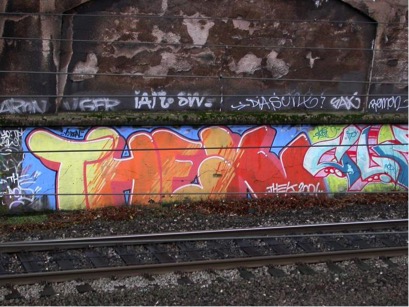The newest train line corridor in Melbourne has been vandalised with graffiti in an extension that runs for kilometres. The stations that run on the Frankston line were only opened in 2016 but is now a corridor that is full of graffiti. It went from a shiny appearance to a complete disaster covered with tags and graffiti.
Unfortunately, the graffiti removal works are being held back due to the lack of clarity regarding whose responsibility is to clean it up. The CEO of Public Transport Victoria, Jeroen Weimar, said that the responsibility relies on Metro trains because they ought to maintain the stations as well as the railway corridor clean and comfortable, which obviously includes the cleaning of graffiti, as it was stated by a contract between Metro trains and the state government.
As expected, Metro is having a hard time admitting that the graffiti removal is actually their responsibility. The Director of Operations, Ron Bria, struggled to specify whether the job should be performed by them. Bria explained that they are obligated to clean the graffiti within 50 meters of each station, but outside that perimeter it is between VicTrack and the local council, he mentioned.
The liberal candidate from Bentleigh, Asher Judah, also announced regarding the matter, saying that the area covered in graffiti is a camp for local vandalism and it could lead to bigger crimes. He also mentioned that the state government owns the assets, but they do not spend money on them.
As pointed out by the candidate, graffiti and tagging always leads to more and more examples of this kind of offences. Once a vandal commits the assault and no action is taken, the probability of another offender that does the same increases significantly, giving the appearance of a neglected and unsafe place. For this reason, the importance of graffiti removal becomes crucial. As soon as it is discovered, it should be removed, in order to decrease the chances of new transgressors to do the same. Regrettably, the conditions of the Frankston line would have been different if the pertinent authorities had acted promptly, in addition to the higher costs that imply a greater extension of assets tagged.

